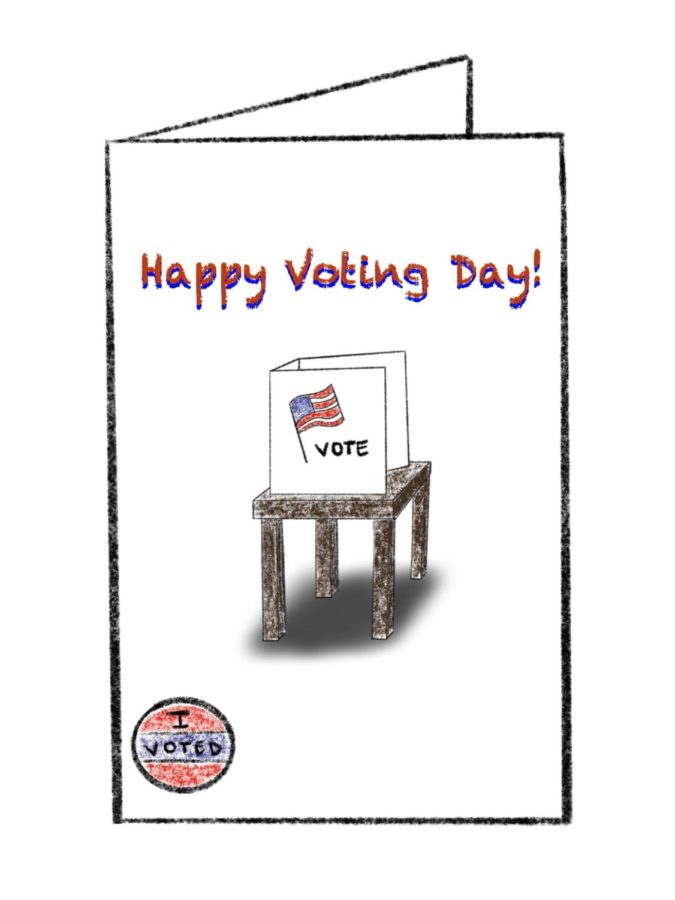In the 2020 election, 158.4 million Americans voted, amounting to only 66.8% of eligible voters. The United States placed 31st out of 50 nations with similarly-timed elections in percentage of eligible voters that actually cast their ballots; the U.S. fell between Colombia (62.5%) and Greece (63.5%).
According to The New York Times, President Joe Biden defeated former president Donald Trump by only two votes in a precinct in Scottsdale, Ariz. in the 2020 election. Two votes in a fervently-contested swing district! Clearly, every single vote mattered in that election, and the result could have wildly differed if the other 30% of eligible voters went to the polls.
If more people vote, our representatives will more accurately represent their constituencies, which, in turn, means more people will have a say in how the government functions. It almost seems obvious that we should be making voting as accessible as possible, but, right now, that’s not the case.
For working-class Americans with a 30-minute lunch break, rushing to the polls on a Tuesday simply isn’t feasible. According to the Census Bureau, registered voters listed “conflicting schedules” as the primary reason that they didn’t cast a ballot in 2008, 2010, 2012 and 2014; this issue was the second most common reason in 2016 behind a “dislike of the candidates or campaign issues.”
The solution? The United States needs to make Election Day a federal holiday. If workers get the day off to head to the polls, more Americans can vote without risking their jobs.
This isn’t a new initiative, either. Several other countries already have two main strategies in place: move Election Day to the weekend or make it a national holiday.
In Argentina, Belgium, Denmark and other countries where voters get the day off from work to head to the polls, the voter turnout sits well above 80%. Even if the United States doesn’t want to establish an entirely new holiday, the government could move Election Day to Saturday or Sunday. Uruguay utilizes this strategy and boasts a turnout rate of over 90%.
Many nations with high voter turnout rates also have compulsory voting laws. Argentina, as mentioned above, turns out over 80% of eligible voters; this is in part due to the fact that Argentinians over 16 can vote, and all constituents aged 18 to 70 must vote or face a small fine, with limited exceptions.
Compulsory voting doesn’t appeal to many Americans because they think that voting in and of itself should be a voluntary action. However, especially if the United States doesn’t want to compel voting, we need to do everything in our power to encourage and facilitate turnout.
One main difference between voters and non-voters is their socioeconomic status. According to the United States Census Bureau, in the 2020 presidential election, people with an annual income between $100,000 and $149,999 held an 81% turnout rate, compared to 63.6% for those whose income was $30,000 – $39,999.
We need to stop thinking that non-voters are lazy or averse to exercising their constitutional rights. Yes, wealthier Americans vote in higher numbers because they are typically more educated — another indicator of voter turnout — but also because they can leave work or adjust their schedules to get to the polls. Since the wealthy vote in higher numbers, representatives respond to their needs first to support their re-election campaigns, further polarizing our political system.
Making Election Day a federal holiday won’t solve all our political system’s woes, but it will abate current injustices which disenfranchise blue collar voters who deserve a vote just as much as their wealthy counterparts. With elections increasingly divided, there is no better time to take legislative action to increase voter turnout.

